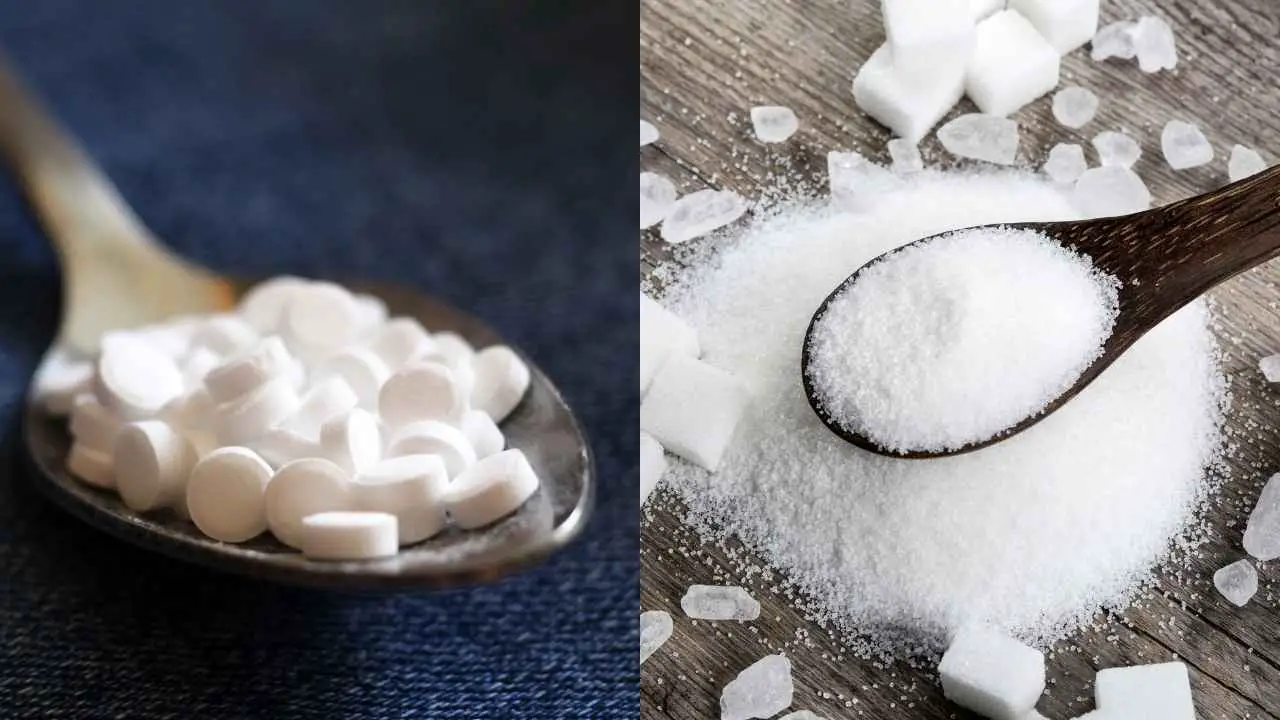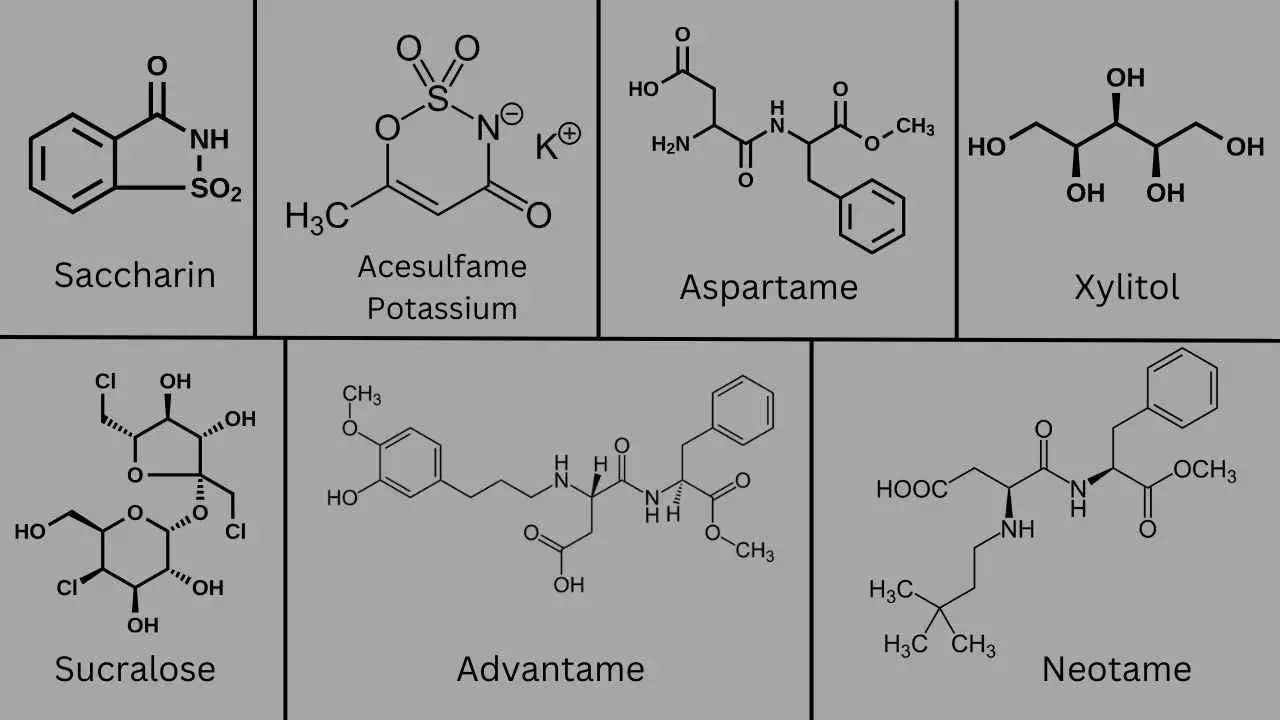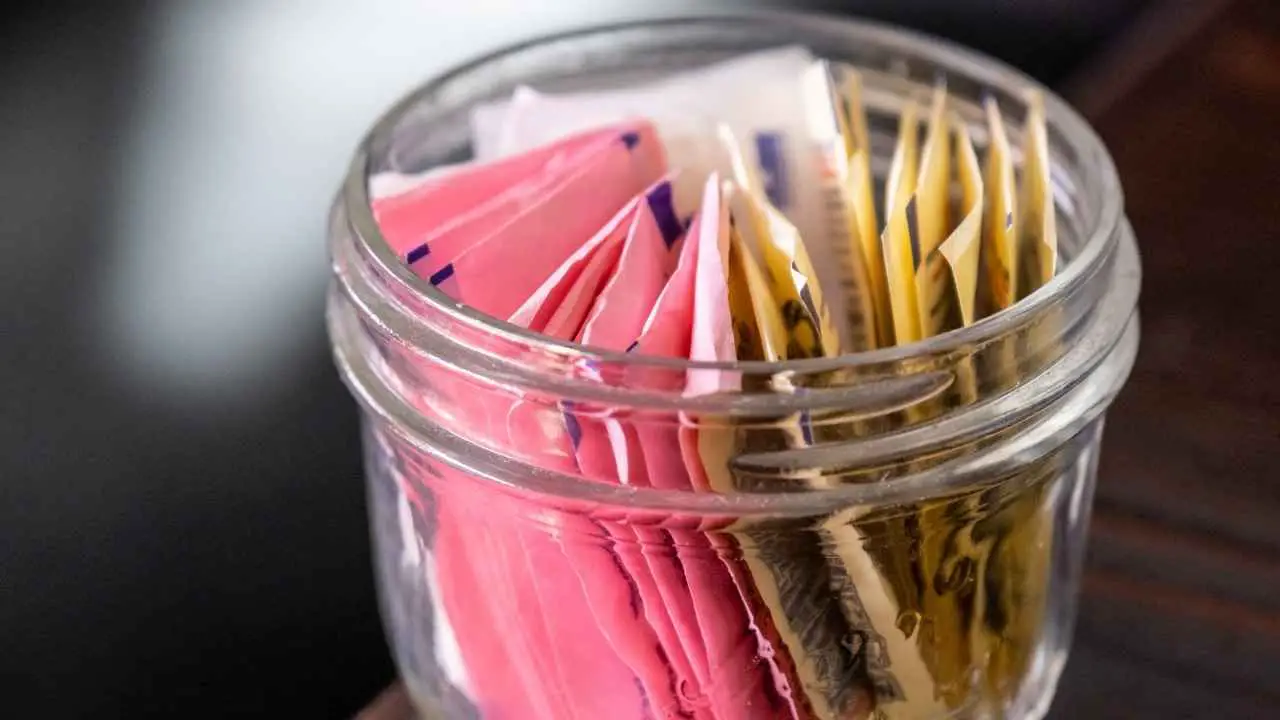Artificial sweeteners are something people know as an alternative to sugar. However, what they don’t know is that artificial sweeteners can erode their tooth enamel. In today’s World artificial sweeteners are added to almost every food like; candy, puddings, dairy products, baked goods, jams and jellies, canned food, and soft drinks. Therefore, it is really difficult to stay away from artificial sweeteners. Let’s dive into further details.
Are Artificial Sweeteners Bad For Your Teeth?
No, not all of them are bad for your teeth, however, many artificial sweeteners, like the ones used in diet sodas, can directly contribute to erosion of your tooth enamel over time.
Studies show that they are better than sugar because they are not a food source for the bacteria in the mouth that produce acids, leading to tooth decay. However, you still can not say that they are completely healthy to use. Many artificial sweeteners like aspartame, acesulfame potassium (Ace-K), sucralose, and saccharin have been the subject of controversy and some studies suggest potential health concerns.
On the other hand, there are many good artificial sweeteners such as; Stevia (Steviol Glycosides), Erythritol, Monk Fruit Extract (Luo Han Guo), Xylitol, Allulose, which not only keep your teeth healthy but also keep you away from excessive amount of calories often found in sugar.
What’s the Difference Between Sugar and Artificial Sweeteners?

One of the major differences between sugar and artificial sweeteners is that sugar feeds the bacteria in our mouth, producing acid waste which in return causes erosion of tooth enamel. On the other hand, artificial sweeteners do not contain any sugar which means bacteria in our mouth can not have anything to feed on. Thus no direct erosion of tooth enamel occurs.
Do artificial sweeteners cause tooth decay?

Yes, one way or another artificial sweeteners can cause tooth decay because products like sodas contain high acid amounts. The quantity of these acids found in these products can have the same effect as sugar on our teeth, causing fermentation to produce acid and then this acid erodes our tooth enamel.
How many types of artificial sweeteners are available in the market?

There are several different types of artificial sweeteners, including:
🔬 Subscribe to SciMail
Get the latest science discoveries straight to your inbox!
- Saccharin (Sweet N Low, Sugar Twin)
- Aspartame (NutraSweet, Equal)
- Acesulfame Potassium (Sweet One, Swiss Sweet, Sunett)
- Sucralose (Splenda)
- Advantame
- Neotame (Newtame)
- Xylitol
Is fake sugar bad for your teeth?
Yes, fake sugar or artificial sweeteners are bad for our teeth as well as for our overall health. Maybe not directly but indirectly, fake sugar in reaction to other acids like citric, phosphoric, or tartaric, acts in a similar way as sugar. Therefore, it’s better to avoid sugar or sweeteners anyway.
What sweetener does not promote dental decay?
Xylitol is a unique sweetener that is known to fight against bacteria in our mouth, reducing the risk of dental caries. As well as, it doesn’t allow bacteria to produce any acids in our mouth thus preventing dental decay.
Which is worse: sugar or artificial sweeteners?
Sugar is worse than artificial sweeteners because it causes bacteria to grow in our mouth in the form of plaque which feels fury when touched by the tongue every morning or when we eat something with high sugar levels. This bacteria causes the tooth enamel to erode if not taken care of properly.
Is it bad to have artificial sweeteners every day?
Yes, it is really bad to have artificial sweeteners every day because they can cause tooth decay. Additionally, some researchers believe that long-term use of artificial sweeteners can lead to a higher risk of stroke, heart disease and in some cases death.
Are artificial sweeteners bad for your teeth and gums?
Yes, artificial sweeteners are bad for your teeth and gums because if you believe that you can exchange sugar with other artificial sweeteners such as; sucralose or saccharin then you are in a dilemma because one way or another, artificial sweeteners are also a source of sweetness in your food.
Are sweeteners bad for your health?
Yes, long-term use of sweeteners can cause severe problems like heart disease, obesity and other health problems. A study (in the 1970s) shows that an artificial sweetener named “saccharin” caused bladder cancer in rats. Later, researchers clarified that those findings don’t apply to humans, however, it is better to be safe than sorry.
Is Aspartame bad for your health?
Yes, aspartame is classified as possibly carcinogenic (having the potential to cause cancer) to humans. According to an article published by the World Health Organization on 14-July-2023, “IARC classified aspartame as possibly carcinogenic to humans (Group 2B) on the basis of limited evidence for cancer in humans (specifically, for hepatocellular carcinoma, which is a type of liver cancer)”.
FAQ’s
Are sweeteners worse for your teeth than sugar?
No, artificial sweeteners are not worse than sugar. Instead, sugar is worse than artificial sweeteners.
Are sweeteners better for your teeth than sugar?
Yes, artificial sweeteners are better for your teeth than sugar because they are not a food source for the bacteria in the mouth that produce acids, leading to tooth decay.


Leave a Reply